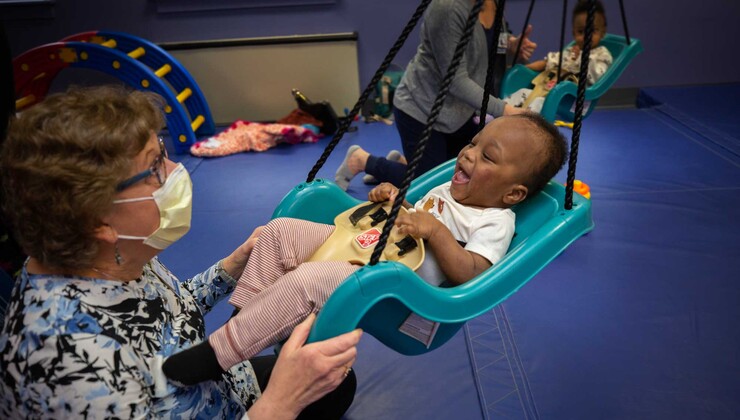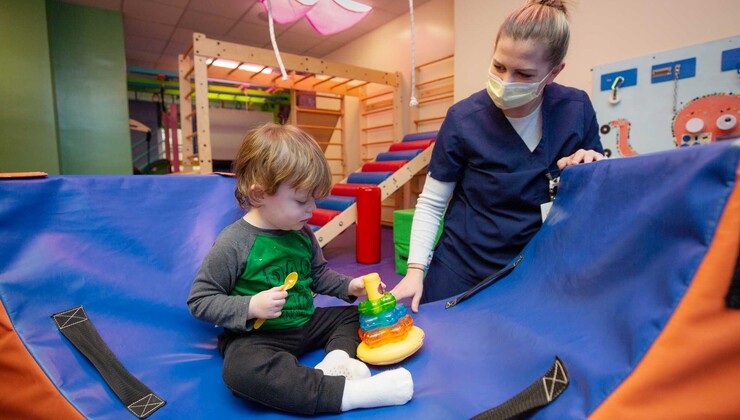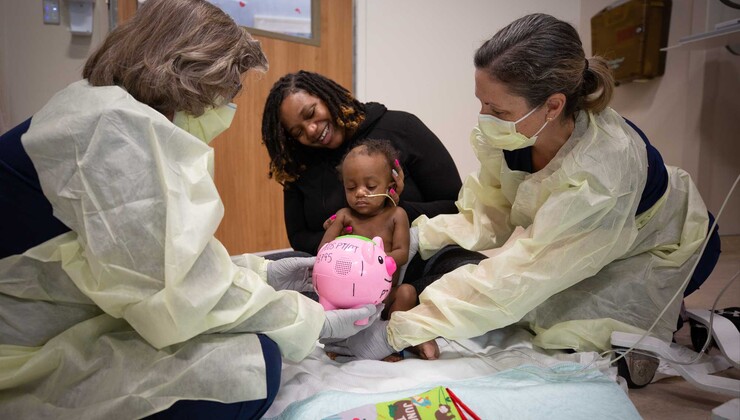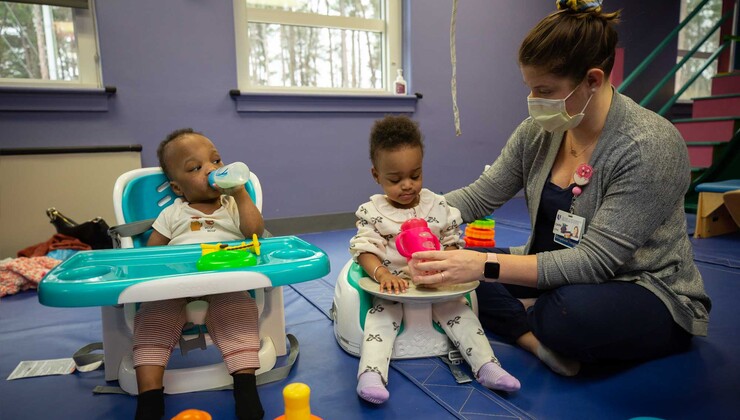We Help Your Child Build Success
Duke pediatric occupational therapists help children build success with self-care tasks, school tasks, play and leisure, and community participation. These activities include dressing and eating, drawing, writing, and playing with friends or on the playground. In our outpatient clinics and in the hospital, we work with your child to develop their:
- Motor planning and coordination skills
- Social and play skills
- Cognitive and executive functioning skills
- Feeding skills for infants, toddlers, and school-aged children with oral motor and sensory-based feeding difficulties
- Sensory processing and sensory integration skills
- Visual-motor and visual-perceptual skills
- Self-regulation skills
Our services also include:
- Splinting and serial casting the upper extremity
- Assistive technology assessment and training to maximize independence and access to augmentative and alternative communication devices, computers, tablets, and educational and daily activities
- Equipment evaluations for the home or community setting
- Recommendations for low vision adaptations
We Consider the Whole Child
This includes your child’s strengths and abilities. We use our knowledge of child development to help children improve their skills, educate parents and caregivers on strategies for home, and make recommendations for ways to change the environment or activity to better suit your child’s needs.
We Strive for the Gold Standard
Duke pediatric occupational therapists strive for the gold standard in credentialing, continuing education, compliance, and safety. In addition to licensure requirements and Occupational Therapy Practice Act guidelines, many of our occupational therapists are board-certified and have specialty certifications in pediatric areas.






